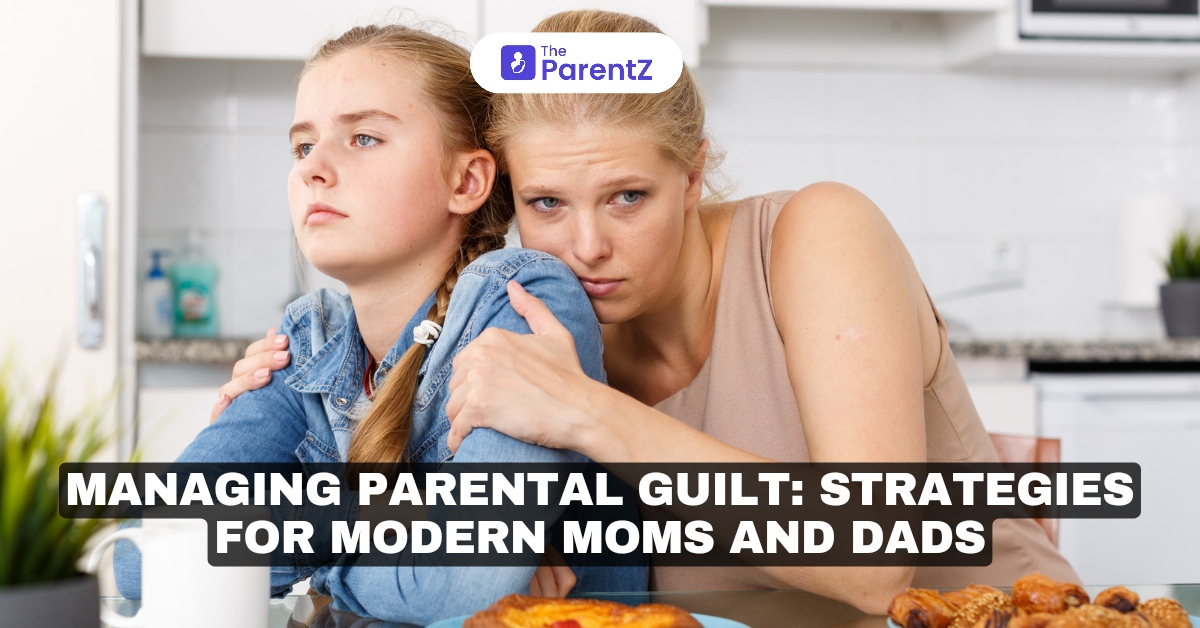Parental guilt is a common emotion experienced by both moms and dads in today’s fast-paced world. As parents juggle multiple roles—working professionals, caregivers, and partners—they often feel overwhelmed by the fear of not doing enough for their children. This guilt can stem from societal pressures, personal expectations, or the belief that they are not meeting the ideal standards of parenting. However, understanding and managing parental guilt is crucial for maintaining mental well-being and fostering a healthy family environment.
The Root Causes of Parental Guilt
Parental guilt often arises from various sources, including:
- Societal Expectations: Society often imposes unrealistic expectations on parents, particularly mothers, who are expected to be nurturing, patient, and always available. Fathers, too, face pressure to be the ideal providers while also being emotionally present.
- Comparative Parenting: In the age of social media, parents frequently compare themselves to others, leading to feelings of inadequacy when they perceive that others are doing a better job.
- Work-Life Balance Struggles: Many parents feel guilty about the time they spend at work versus the time they dedicate to their children. The fear of missing out on important moments in their child’s life contributes significantly to this guilt.
- Parenting Perfectionism: Some parents set high standards for themselves, believing that they must do everything perfectly. When they inevitably fall short, guilt sets in.
The Impact of Parental Guilt
Persistent parental guilt can have far-reaching effects on both parents and children. Research has shown that high levels of guilt can lead to:
- Increased Stress and Anxiety: Constantly feeling guilty can lead to chronic stress and anxiety, which can affect a parent’s mental health and overall well-being.
- Parental Burnout: Guilt often drives parents to overcompensate by overextending themselves, leading to burnout. This can result in emotional exhaustion, irritability, and a decreased ability to engage positively with their children.
- Strained Parent-Child Relationships: Guilt can sometimes cause parents to become overprotective or overly permissive, leading to unhealthy dynamics in the parent-child relationship.
Strategies for Managing Parental Guilt
- Acknowledge and Validate Your Feelings: The first step in managing parental guilt is to acknowledge that it exists. Understand that it’s a common emotion and that you’re not alone in experiencing it. Validate your feelings without judgment, and recognize that it’s okay to feel this way.
- Set Realistic Expectations: Understand that no parent is perfect. Set achievable goals for yourself as a parent and accept that there will be times when you make mistakes. Focus on doing your best rather than striving for perfection.
- Prioritize Self-Care: Taking care of yourself is essential for effective parenting. Ensure that you take time to rest, pursue hobbies, and nurture your relationships. When you are physically and emotionally healthy, you’re better equipped to care for your children.
- Establish Work-Life Boundaries: Create clear boundaries between work and family time. When at work, focus on your tasks, and when at home, be fully present with your children. This separation helps reduce the guilt associated with feeling torn between the two.
- Seek Support: Don’t hesitate to reach out to your partner, family, or friends for support. Sometimes, simply talking about your feelings can alleviate guilt. If needed, consider seeking professional help, such as therapy or counseling, to address deep-seated guilt issues.
- Practice Self-Compassion: Treat yourself with the same kindness and understanding that you would offer to a friend. Recognize that parenting is a challenging journey and that it’s okay to have difficult days.
- Focus on Quality Over Quantity: Instead of fixating on the amount of time you spend with your children, focus on the quality of that time. Engaging in meaningful activities, having open conversations, and creating lasting memories are more valuable than the number of hours spent together.
Conclusion
Parental guilt is an inevitable part of the parenting journey, but it doesn’t have to dominate your experience. By understanding its root causes and implementing strategies to manage it, modern moms and dads can alleviate the burden of guilt and focus on building a healthy, supportive family environment. Remember, being a good parent is not about being perfect; it’s about doing your best with love, patience, and understanding.








Be the first one to comment on this story.